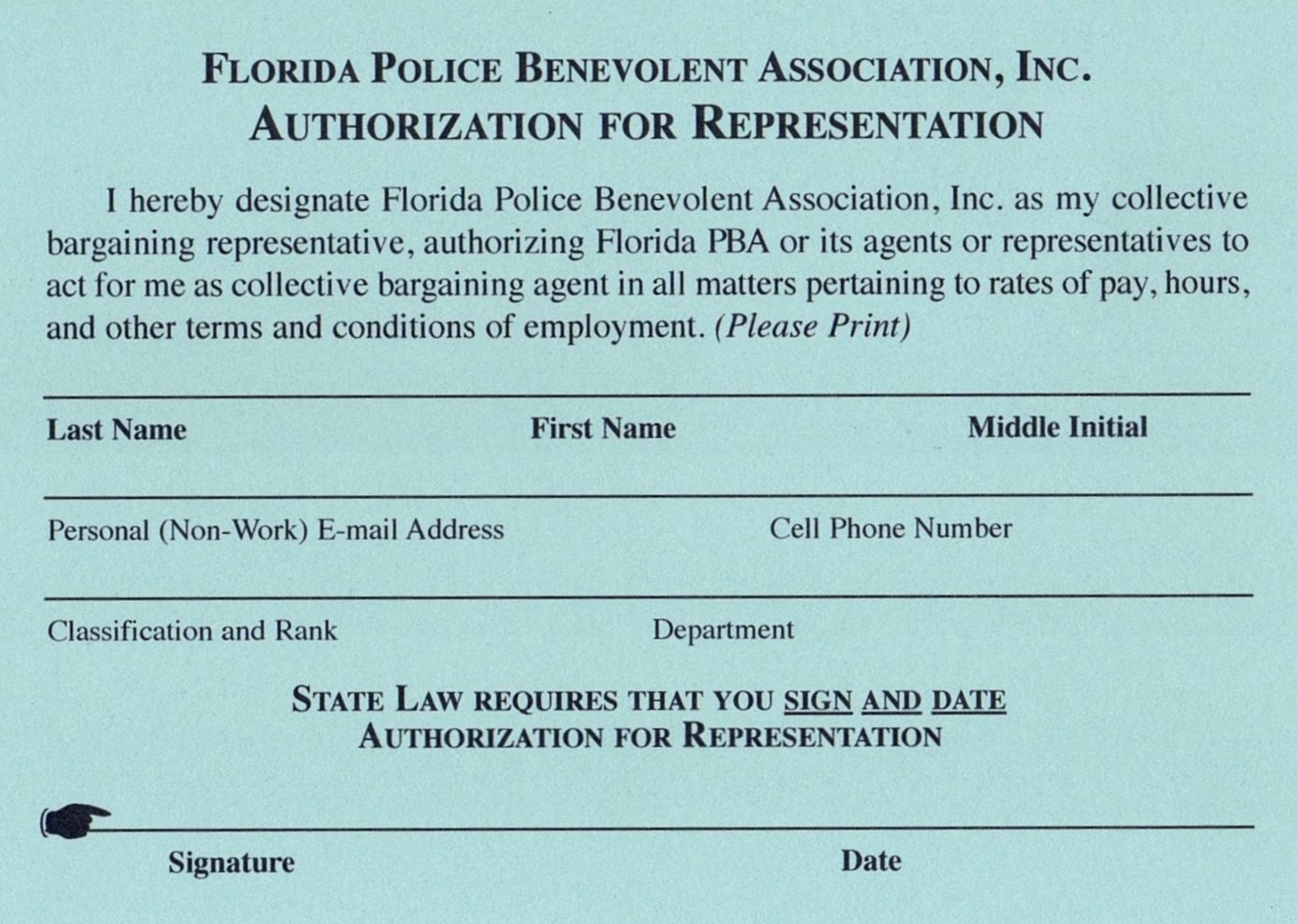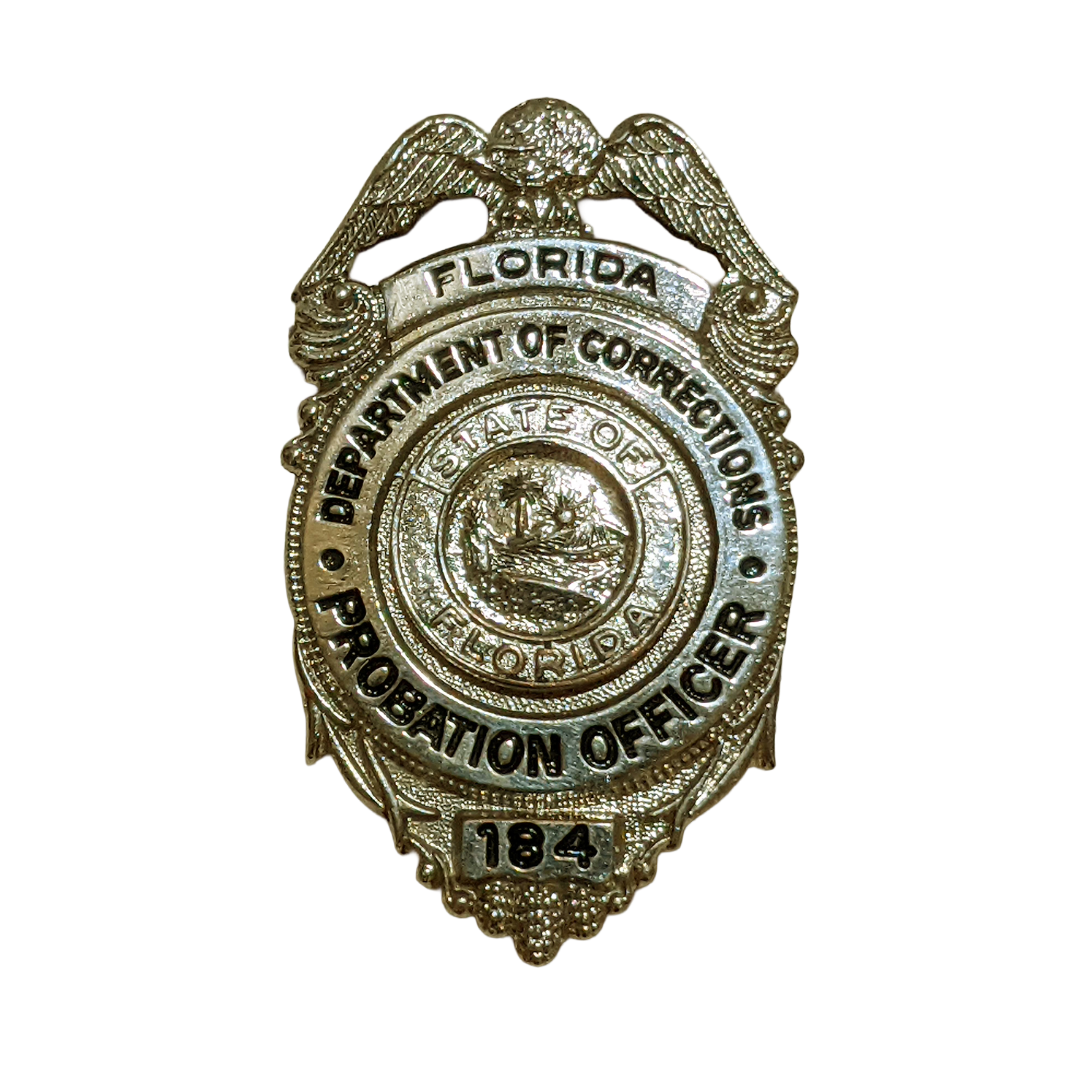
Contract Services
The Florida Police Benevolent Association provides professional contract negotiators to negotiate collective bargaining agreements. Collective bargaining involves the negotiation of hours, wages, and conditions of employment between the employer and the members of the bargaining unit. The PBA represents more law enforcement bargaining units than any other union in the state of Florida. The PBA proudly won the legal battle for deputy sheriffs to receive collective bargaining rights in Florida. We fight for higher wages and better working conditions for our membership through the collective bargaining process. If your agency hasn’t joined the hundreds of other law enforcement agencies in Florida that have given a voice to the employees when it comes to their own wages, hours, and conditions of employment, call us and we will help you start the process to join Florida’s largest law enforcement labor organization!
Click below to see the process to organize a bargaining unit and become represented by the PBA.
- Step 1 – Obtaining Showing of Interest Cards
- • Members of an agency interested in the PBA representing them for collective bargaining need to complete a “Showing of Interest Card.” (Commonly referred to as a “Blue Card”) The Public Employees Relations Commission (PERC) requires that 30% of active employees in the prospective bargaining unit fill out these cards before the process will begin.

- Step 2 – Filing Representation-Certification Petition
- • Once enough cards have been collected, the PBA Legal Department will review the cards and file a “Representation-Certification Petition” with PERC.
- • After the PBA submits the Petition and showing of interest cards, PERC will review to make sure all information is correct and accurate. The showing of interest cards remain CONFIDENTIAL- the employer CANNOT see who filled out cards to initiate the PBA’s representation.
- • After reviewing for accuracy, PERC will enter a “Notice of Sufficiency” and assign the matter to one of their Hearing Officers.
- Step 3 – Hearing Process
- • After being assigned to a Hearing Officer, the agency has a chance to either agree to the composition of the proposed unit or to oppose the composition of the proposed bargaining unit. This only means that the agency can agree or disagree with what job positions are in the proposed unit. For example, if the PBA proposed to create a bargaining unit comprised of law enforcement officers and captains from the same agency, the agency is likely to object as it is typically inappropriate to have those two positions in the same bargaining unit.
- • Agree – If the agency agrees with the prospective bargaining unit, both parties (PBA and agency) can generally enter Joint Stipulations and the matter can be sent to the elections division of PERC.
- • Oppose – If the agency opposes the prospective bargaining unit, both parties will attempt to resolve the issue through responses and filings. If need be, an Evidentiary Hearing will be held where the parties will present their case as to why the bargaining unit proposed by the PBA is appropriate. Upon conclusion of the hearing, parties submit Proposed Recommended Orders to the Hearing Officer and the Hearing Officer renders a decision as to whether the proposed bargaining unit is acceptable.
- • After being assigned to a Hearing Officer, the agency has a chance to either agree to the composition of the proposed unit or to oppose the composition of the proposed bargaining unit. This only means that the agency can agree or disagree with what job positions are in the proposed unit. For example, if the PBA proposed to create a bargaining unit comprised of law enforcement officers and captains from the same agency, the agency is likely to object as it is typically inappropriate to have those two positions in the same bargaining unit.
- Step 4 – Election Proces
- • When the Hearing Officer determines the proposed bargaining unit is acceptable, he or she will issue a Recommended Order to the Commission asking that the matter be referred to the Elections Division.
- • The Commission will then review the Hearing Officer’s Recommendation and issue a Final Order transferring the case to the Elections Division.
- • Once at the Elections Division, PERC officials will schedule the election for the membership of the defined bargaining unit.
- • There are 2 types of elections that can be held – 1.) On-site or 2.) Mail ballot.some text
- • It is important to know that both methods are confidential and all employees in the prospective barraging unit will be given a chance to vote.
- • Once the election has concluded, members of the Election Division will conduct a ballot count.
- • Typically, a ballot will allow a person to pick between: 1. The PBA or 2. No Union
- • The winner of the election is determined by the majority of votes.
- • If the PBA prevails in the election, PERC will issue a new Certification Number regarding the newly created bargaining unit and the PBA can then get to work helping them create a collective bargaining agreement which secures the members rights and wages in the contract.
Join the PBA
Florida Police Benevolent Association membership is open to all certified law enforcement and corrections officers regardless of race, creed, sex or national origin. The Association is made up of semi-autonomous charters formed on a county-wide or regional basis, and local or statewide chapters.









































